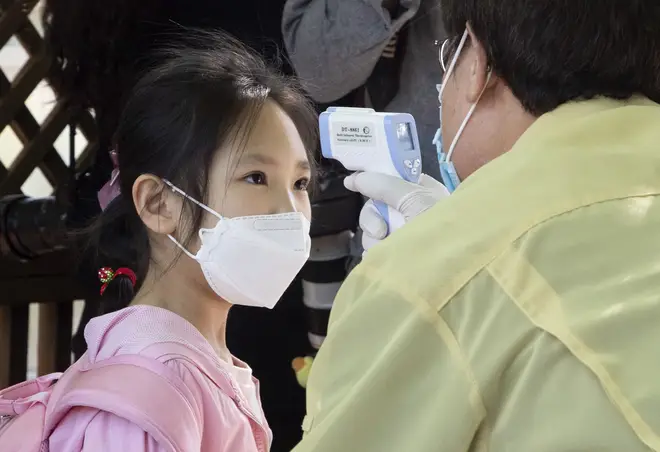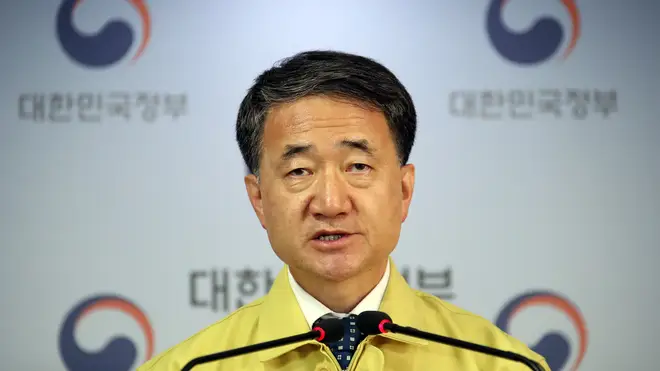
Matt Frei 10am - 1pm
22 June 2020, 15:09

South Korea is facing a "grave situation" as the country confirms a second wave of coronavirus infections.
Health officials at the Korea Centers for Disease Control (KCDC) said the rise in Covid-19 infections signalled a second wave in the capital Seoul.
The Minister of Health and Welfare, Park Neung-hoo, confirmed a further 90 imported cases across the past week, which was almost double the 48 recorded throughout the previous week.
Speaking at a government meeting on the response to coronavirus, he said: "The government faces a grave situation as health officials need not only to contain locally transmitted infections, but also manage imported cases."
Seoul's mayor, Park Won-soon, suggested the country could be facing up to 800 new cases per day in a month's time if it fails to suppress the fresh wave of transmissions.
He confirmed the R rate had reached nearly 1.8 for the period between 30 April and 11 June, indicating the country was losing control of the virus.
Read more: North Korea 'blows up joint liaison office' with South as tensions rise

South Korea had previously been commended for its response to the pandemic, reporting just 280 deaths and roughly 12,500 cases so far.
At the end of February, the country experienced a peak of more than 900 infections in a single day, representing the first major outbreak of the disease outside of China, where Covid-19 is believed to have originated.
Following an intensive campaign of tracking and tracing, South Korea brought that figure down to single digits just two months later.
But once social distancing measures were relaxed at the beginning of May, cases jumped back up as nightclubs reopened and people enjoyed a national holiday weekend.

Beijing raises its emergency level as 140 new coronavirus cases reported
KCDC director Jeong Eun-kyeong suggested the country's first wave lasted up until April. However, since May, clusters of new infections have grown, including outbreaks at a number of Seoul nightclubs.
She said the country's early-May holiday weekend sparked the second wave, focused in the greater Seoul area which had previously seen few cases.
“In the metropolitan area, we believe that the first wave was from March to April as well as February to March,” she said at a briefing.
“Then we see that the second wave, which was triggered by the May holiday, has been going on.
“We originally predicted that the second wave would emerge in fall or winter. Our forecast turned out to be wrong. As long as people have close contact with others, we believe that infections will continue.”

Other countries had previously indicated second waves, but South Korea has become the first to officially acknowledge it.
Earlier on Monday, the city of Daejeon, south of Seoul, announced it would ban gatherings in public spaces such as museums and libraries after numerous small virus clusters were discovered.
The capital's mayor also hinted the city could reintroduce strict social distancing measures if, over the next three days, the number of infections tops 30 on average and the bed occupancy rate of Seoul's hospitals exceeds 70 per cent.
"If Seoul gets penetrated (by the virus), the entire Republic of Korea gets penetrated," Park said in a televised briefing on Monday.